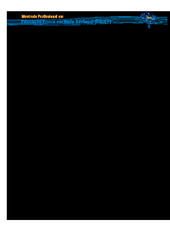Discursos discentes sobre o ensino do esporte na educação física escolar: trabalho, comunicação, permanência e mudança
Abstract
Considering the changes brought about by the renovating movement starting from the 1980s, there began a reflection on the teaching of sports in Physical Education, criticizing the hegemony of this content, its approach in the classroom, and which sports modalities were integrated into the school curriculum. In this interval, innovative models of sports teaching emerged which intend to place learners at the central condition of the educational process as an option to traditional models that emphasize the learning of technique. Nonetheless, traditional sports modalities, whose sociocultural relevance, media appeal, and access to practice are greater (generally football/futsal, basketball, volleyball, and handball, the “fantastic quartet”), continue to occupy a considerable amount of time in school Physical Education classes, to the detriment of a more varied repertoire that would also include non-traditional modalities (little known in the local context, with no space in the media and requiring expensive and difficult-to-obtain materials). The objective of this study was to investigate student discourses regarding the development of didactic units for teaching sports in Physical Education classes for 9th-grade students in a public school in Campinas-SP. This is a qualitative research with a phenomenological approach. Two didactic units were applied with alternating teaching models and sports modalities: traditional or innovative models combined with traditional (basketball) or non-traditional (Ultimate Frisbee) sports modalities. Data collection was carried out through the recording of conversation circles held after the application of each didactic unit. The data obtained were analyzed under the situated phenomenon modality. The analyses resulting from the two experiences demonstrated, in the first one, the student perspectives regarding the comfort of remaining with what is known in the face of the imbalances caused by change, and in the second one, a context in which the speeches were directed to the categories of work (facilities and difficulties in learning) and communication (facilities and difficulties in interaction and language), highlighting the need to apply dialogical teaching models in which student centrality will be exercised. In final considerations, we indicate that a variety of sports teaching models must be experimented and applied, such as many sports modalities must be taught in curriculum, as it is necessary and possible to achieve a liberating, emancipatory and humanized sports pedagogy.
Collections
The following license files are associated with this item:

